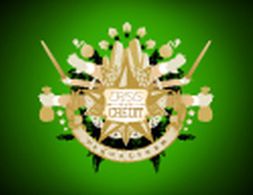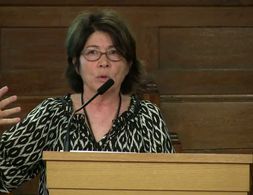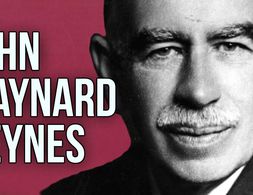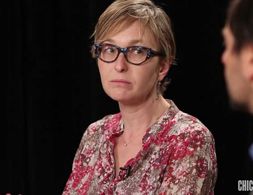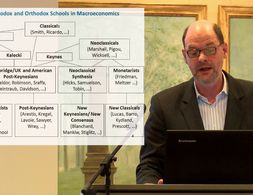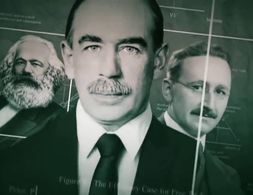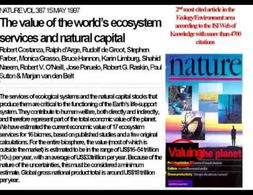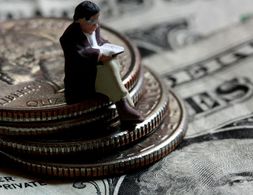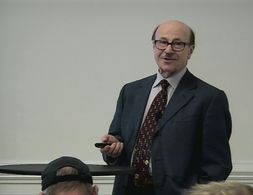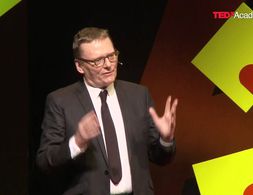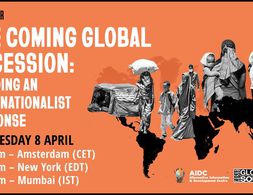✕
390 results
The notion that the demand and supply side are independent is a key feature of textbook undergraduate economics and of modern macroeconomic models. Economic output is thought to be constrained by the productive capabilities of the economy - the ‘supply-side' - through technology, demographics and capital investment. In the short run a boost in demand may increase GDP and employment due to frictions such as sticky wages, but over the long-term successive rises in demand without corresponding improvements on the supply side can only create inflation as the economy reaches capacity. In this post I will explore the alternative idea of demand-led growth, where an increase in demand can translate into long-run supply side gains. This theory is most commonly associated with post-Keynesian economics, though it has been increasingly recognised in the mainstream literature.
The historical situation of low interest rates after the Fed's response to the 2001 crisis alongside with huge foreign money inflow to the US are presented as the historical context in which subprime lending and financial instruments like CDOs and CDS evolved. Then those instruments as well as the concept of leverage are explained briefly.
Economist and 2020 Balzan Prize winner for Environmental Challenges: Responses from the Social Sciences and Humanities, Joan Martínez Alier, speaks on the importance of ecological economics and its timeliness around the 2007/2008 global financial crisis. He speaks on the importance of building the field of ecological economics “from the ground up” through praxis.
This is a recording of an introductory course held at the 4th International Degrowth Conference for Ecological Sustainability and Social Equity in Leipzig in 2014. Federico Demaria from the French-Spanish organisation Research and Degrowth gives an introduction to degrowth. The presentation is based on the introduction to the book “Degrowth. A vocabulary for a new era.” and discusses definitions of degrowth, degrowth literature, debates, history and further research to be done.
Does Karl Polanyi's work “The Great Transformation” serve to analyse the current multiple crisis and social movements? Nancy Fraser revises Polanyi's concept of a double movement to capture social forces in the aftermath of the economic crisis of the 1930s – on the one side marketization and on the other hand social protection. Fraser proposes to talk about a triple movement and to account for emancipatory struggles. In the lecture, she discusses interactions as well as conflicts between those three forces, in particular conflicting aims of social protection. The lecture presents the content of her paper “A TRIPLE MOVEMENT? Parsing the Politics of Crisis after Polanyi“ in the New Left Review (2013).
The core of Georgism is a policy known as the Land Value Tax (LVT), a policy which Georgists claim will solve many of society and the economy’s ills. Georgism is an interesting school of thought because it has the twin properties that (1) despite a cult following, few people in either mainstream or (non-Georgist) heterodox economics pay it much heed; (2) despite not paying it much heed, both mainstream and heterodox economists largely tend to agree with Georgists. I will focus on the potential benefits Georgists argue an LVT will bring and see if they are borne out empirically. But I will begin by giving a nod to the compelling theoretical and ethical dimensions of George’s analysis, which are impossible to ignore.
Marx’s theory of the falling rate of profit is not only empirically borne out, but the theory he proposed seems to describe accurately how that happens. Furthermore, the whole process is useful for understanding the history of contemporary capitalism.
Michael Kalecki famously remarked “I have found out what economics is; it is the science of confusing stocks with flows”. Stock-Flow Consistent (SFC) models were developed precisely to address this kind of confusion. The basic intuition of SFC models is that the economy is built up as a set of intersecting balance sheets, where transactions between entities are called flows and the value of the assets/liabilities they hold are called stocks. Wages are a flow; bank deposits are a stock, and confusing the two directly is a category error. In this edition of the pluralist showcase I will first describe the logic of SFC models – which is worth exploring in depth – before discussing empirical calibration and applications of the models. Warning that there is a little more maths in this post than usual (i.e. some), but you should be able to skip those parts and still easily get the picture.
This historic timeline presents economic events, economic thinkers and schools of thought from the 18th century until the 2007/2008 financial and economic crisis with short texts on the respective event or perspective.
The lectures were given by Steve Keen at the Exploring Economics Summer Academy 2017 in the workshop on Post Keynesian Economics The first lectures start with the role of money in a monetary economy and explain the macroeconomic significance of admitting the reality that banks create money The lectures continue …
At the 2013 Climate, Mind, & Behavior Symposium, Rebecca Adamson of First Peoples Worldwide illustrates alternative economic systems modeled after indigenous worldviews and the power they have in pushing us towards a more sustainable existence.
An Introduction to the Political Theory of John Maynard Keynes. John Maynard Keynes was arguably the greatest economist of the 20th century. He discovered the idea that governments should stimulate demand during economic downturns.
Teaching the public about lobbying and its effects on financial institutions that help run the economy in which we all live and use.
Environmental catastrophe looms large over politics: from the young person’s climate march to Alexandria Ocasio-Cortez’s Green New Deal, increasing amounts of political space are devoted to the issue. Central to this debate is the question of whether economic growth inevitably leads to environmental issues such as depleted finite resources and increased waste, disruption of natural cycles and ecosystems, and of course climate change. Growth is the focal point of the de-growth and zero-growth movements who charge that despite efficiency gains, increased GDP always results in increased use of energy and emissions. On the other side of the debate, advocates of continued growth (largely mainstream economists) believe that technological progress and policies can ‘decouple’ growth from emissions.
What influence do changes in tax policy or state decisions on expenditure have on economic growth? For decades, this question has been controversially debated.
This lecture by Prof. Dr. Eckhard Hein is part of the Introductory Lectures on Heterodox Economics at the 20th FMM Conference in 2016. It gives a good overview about where Post-Keynesian Economics can be located and what it is all about.
During his life, Keynes was credited with, amongst other things, with helping to save capitalism from the Great Depression, funding the war against the Nazis and building post-war decades of growth and rising prosperity. And when the global crisis struck in 2008, it was his ideas that the world's leaders turned to help avoid another depression.
Robert Costanza briefly present various methods of environmental valuation, and talks about the changes in the global value of ecosystem services. He then introduces the major ecosystem services, and how different methods of valuation affect the preferred policies to address environmental issues.
The article is a formal response to the debate between the economists Diane Coyle and Howard Reed, whose articles were published online by Prospect magazine in 2018. Then, it was taken by Rethinking Economics as representative for the vision of the global network which advocates for changing economics curricula. In fact, it clearly solves some issues within the debate around pluralism by explaining its common misunderstandings among academics and its true - often mislead - meaning.
Since Daniel Kahneman won the Nobel Memorial Price in Economic Sciences in 2002, a new branch of economics gained academic and popular interest. That is, the so-called area of behavioural economics. However, some scholars claim that this new area of economics is not changing much of the mainstream paradigm. Why?
Economic sociology is an entire subfield and one could write an series on it, so I’m going to stick to probably the most prominent economic sociologist and the founder of ‘new economic sociology’, Mark Granovetter.
The most successful multialternative theories of decision making assume that people consider individual aspects of a choice and proceed via a process of elimination. Amos Tversky was one of the pioneers of this field, but modern decision theorists – most notably Neil Stewart – have moved things forward. At the current stage the theories are able to explain a number of strictly ‘irrational’ but reasonable quirks of human decision making, including various heuristics and biases. Not only this, but eye movements of participants strongly imply that the decision-making process depicted in the theories is an accurate one.
One method of economic modelling that has become increasingly popular in academia, government and the private sector is Agent Based Models, or ABM. These simulate the actions and interactions of thousands or even millions of people to try to understand the economy – for this reason ABM was once described to me as being “like Sim City without the graphics”. One advantage of ABM is that it is flexible, since you can choose how many agents there are (an agent just means some kind of 'economic decision maker' like a firm, consumer, worker or government); how they behave (do they use complicated or simple rules to make decisions?); as well as the environment they act in, then just run the simulation and see what happens as they interact over time.
In this talk, Eric Beinhocker outlines his ideas of how to ensure a just and sustainable future for Humanity: This includes his interesting Russian Doll approach to unpacking 20th-century economics and proposals of new theories to underpin a new economic system.
Donald Trump won in 2016 largely because enough voters in three states, all in the Rustbelt, which had voted for Barack Obama in both 2008 and 2012, switched their electoral votes from Democratic to Republican.
James Robinson gives in this talk a short introduction into the theory and ideas of his popular book "Why Nations Fail" which was published together with D. Acemoglu in 2012. With many real-life examples he gives a lively description on the fundamentals for economic success from an institutionalist view. According to Robinson, the nature of institutions is a crucial factor for economic success. Whether institutions are inclusive (such as in prosperous economies) or extractive (poor economies) stems from the nation's political process and the distribution of political power.
The likely global impacts of the economic fallout from the Coronavirus and how we might be better prepared than the 2008 economic crisis to put forward progressive solutions.
This journal article by Radhika Desai, Professor at the Department of Political Studies, and Director of the Geopolitical Economy Research Group at the University of Manitoba, Winnipeg, Canada, was originally published in 2010 and republished in an revised format in 2020. The article is a comprehensive treatment of Marx's theory of crisis, focusing on the role of consumption demand in capitalism and in the emergence of crises.
An essay of the writing workshop on Nigeria’s Readiness for and the Effect of the Fourth Industrial Revolution
An essay of the writing workshop on Nigeria’s Readiness for and the Effect of the Fourth Industrial Revolution
In the history of the social sciences, few individuals have exerted as much influence as has Jeremy Bentham. His attempt to become “the Newton of morals” has left a marked impression upon the methodology and form of analysis that social sciences like economics and political science have chosen as modus operandi.
The effects of the 2020 pandemic on the Latin-American region: a thorough before-after analysis.
We use cookies on our website. Click on Accept to help us to make Exploring Economics constantly better!


